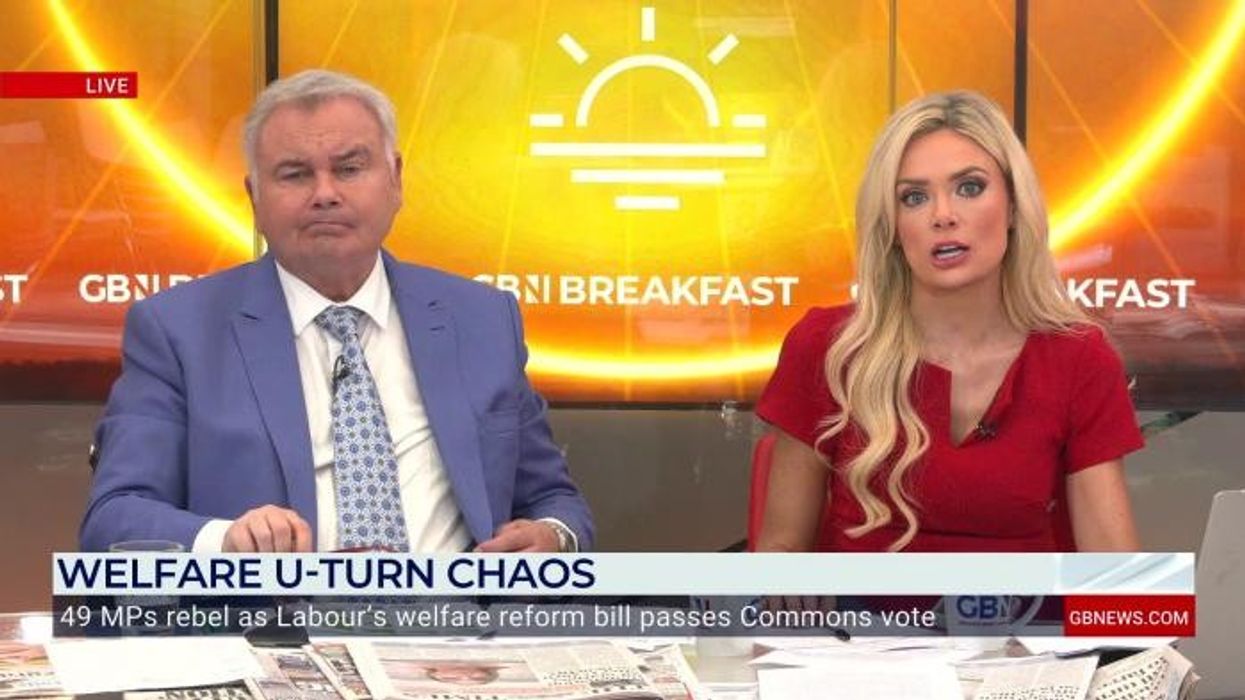Rachel Reeves set to raid pension pots to pay for Labour's £5bn benefits bill U-turn

Pat McFadden comes out to bat for Sir Keir Starmer over the benefits bill vote |
GBNEWS

Economists believe the Chancellor could also come back for another raid on Capital Gains Tax
Don't Miss
Most Read
Chancellor Rachel Reeves is expected to target wealthier taxpayers if forced to raise funds to cover the £5 billion shortfall created by Labour's benefits bill U-turn, according to senior Government sources.
Whilst Labour's manifesto pledged not to increase taxes on "working people", there are "always other options within the tax system around tax fairness in particular," officials said.
While Reeves may target the wealthier, The i Paper understands she is conscious of continuing to encourage entrepreneurship and economic growth, so will be wary of going too far.
The Chancellor has ruled out introducing a wealth tax, as advocated by Labour’s left wing. A wealth tax typically targets total assets rather than income.
She remains committed to the party's manifesto promises, which are understood to rule out increases in income tax, employee National Insurance, VAT or corporation tax.
The Cabinet minister suggested Reeves could examine "not so much a wealth tax", but "other options that the chancellor can look [at], like at some of the current anomalies within the tax system".
These measures could include removing certain tax-free salary sacrifice schemes, reforming pension tax relief structures or raising capital gains tax.
The Treasury is understood to be reviewing salary sacrifice arrangements, following concerns that high earners exploit these schemes to avoid tax cliff edges by converting wages into pension contributions.
Treasury officials have also reportedly presented Reeves with proposals for a 30 per cent flat rate pension tax relief system.
This would replace the current arrangement where basic rate taxpayers receive 20 per cent relief on pension contributions whilst higher rate taxpayers benefit from 40 per cent relief.

These measures could include removing certain tax-free salary sacrifice schemes, reforming pension tax relief structures or raising capital gains tax
|GETTY
Reports indicate this flat rate could generate £2.7 billion for the Treasury. Reeves had previously advocated for a 33 per cent flat rate during her time as a backbencher in 2016.
Reeves acknowledged the financial implications when speaking to broadcasters following her emotional appearance at Prime Minister's Questions on Wednesday.
"Of course there is a cost" to the welfare changes Parliament approved this week, she stated when questioned about potential tax rises in the Budget.
 Many pension experts warn that existing contribution levels will prove insufficient for workers' retirement needs | GETTY
Many pension experts warn that existing contribution levels will prove insufficient for workers' retirement needs | GETTYThe Chancellor declined to speculate on specific measures, saying: "I'm not going to speculate because the budget will be in the autumn... We'll get a new forecast and we'll do the budget later this year."
She emphasised her commitment to fiscal discipline, stating: "I'm also very, very clear that that stability that we've been able to return to the economy which has enabled the Bank of England to cut interests rates four times is only possible because of the fiscal discipline which is underpinned by the fiscal rules."
Tax expert Judith Freeman, a research fellow at the Institute for Fiscal Studies and Oxford professor of tax law, suggested the Government should consider "doing the sensible thing and raising income tax or VAT".

An oxford professor of tax law, suggested the Government should consider "doing the sensible thing and raising income tax or VAT"
| GETTYShe said: "They seem to have good reason to break their manifesto promises, and indeed I think they already have done so in various ways, but I know they feel hemmed in by this promise. I am sure they are thinking of all sorts of alternatives.
"Pensions are a big area that needs reform, but this needs careful planning if anything is to be changed.
"Greater alignment of CGT and income tax is one thing they could be considering."
She also suggested the Government could consider cutting back on inheritance tax reliefs or scrapping salary sacrifice schemes altogether.
Alternatively, Freeman said ministers could look at extending national insurance contributions to workers over state pension age, or raising national insurance rates for the highest earners.
More From GB News










